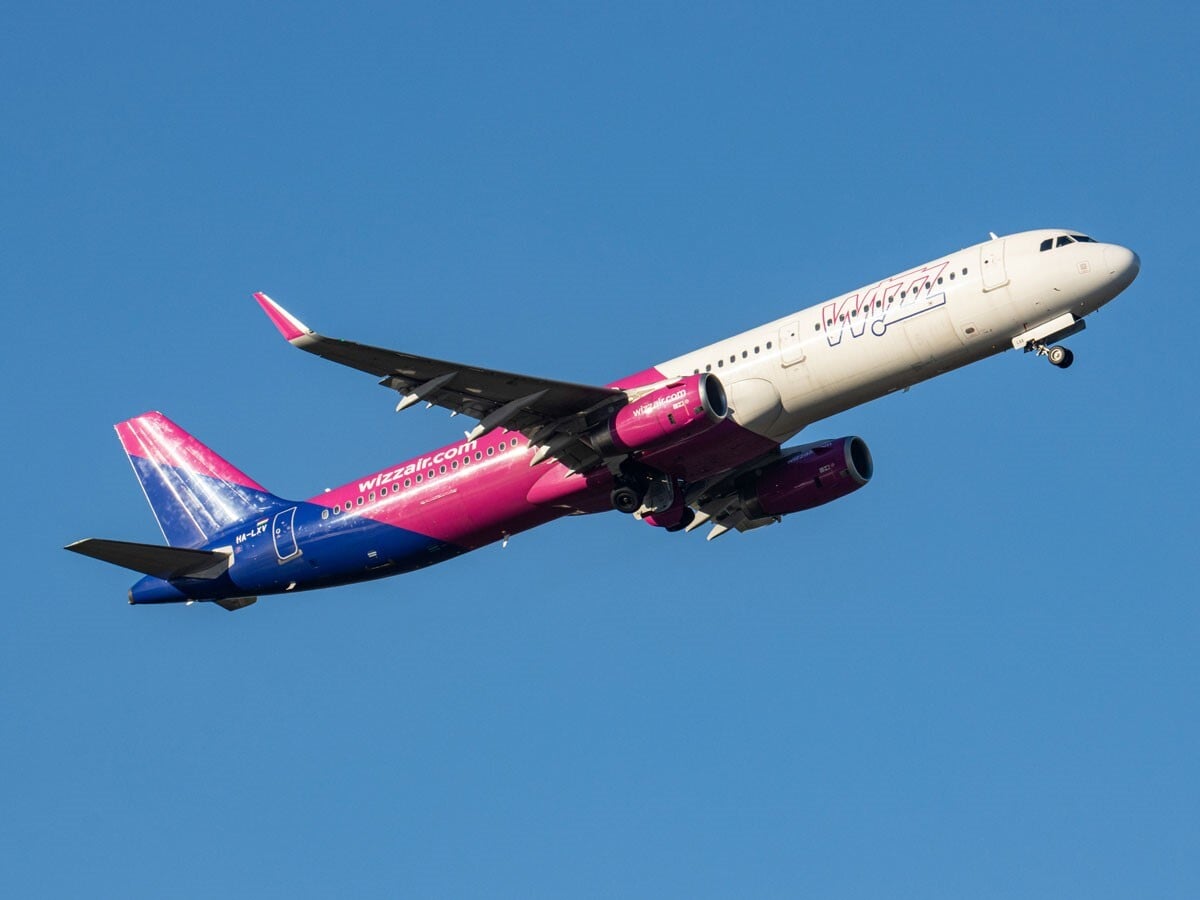Wizz Air’s share price has nosedived after a summer of travel chaos knocked investor confidence. In the first quarter, the Hungarian carrier had reported a meteoric rise in passenger numbers, although rising fuel prices left it with substantial operating losses. But how will summer’s disruption impact this week’s half-year results?
Wizz Air’s [WIZZ.L] share price has nose dived 61.53% to close Friday 28 October at 1,611p as a summer of travel chaos at airports continues to knock investor confidence.
The Hungarian carrier – which operates short-haul flights from 10 UK airports – will be hoping that this week’s half-year results that cover the traditionally lucrative summer season go some way to restoring investor confidence. Although cancelled flights and staffing problems are likely to have some impact on results.
Summer business key for Wizz Air half-year results
The summer season is critical for a carrier like Wizz Air that flies holiday makers around Europe.
In April, Wizz Air said that it expected it would operate 40% more capacity between July and September than the same period in 2019.
However, the industry had a torrid summer as airports struggled to cope with staffing problems and increased passenger numbers. IAG-owned [IAG] British Airways cut 30,000 flights between April and October, while EasyJet [EZJ] pulled 10,000 between July and September. On 27 July, Wizz Air announced that it would cut 10% of summer flights as it battled ongoing travel chaos.
Mass layoffs during the pandemic and the need to rapidly rehire staff has continued to cause disruption in the airline industry. Wizz Air chief executive József Váradi said in June that staff shortages had meant that airports were unprepared for the sudden increase in passenger numbers.
There is also a cost impact of scrambling to hire more staff to cope with demand. During the first quarter, Wizz Air paid €86.3m on staff, up 150% year-on-year from €34.5m.
The turmoil has been reflected in Wizz Air’s share price which has fallen 43.55% since 1 June. In the same timeframe, EasyJet’s share price has dropped 35.26% and British Airways owner IAG's stock is down 4.95%.
What else to look out for in Wizz Air’s half-year results
How Wizz Air balances increased demand, summer disruption along with rising fuel costs will be closely watched in the half year results.
In the first quarter, covering the three months to 30 June, Wizz Air reported passenger numbers and revenue had more than quadrupled year-on-year. A total of 12.2 million people flew with the carrier, up 312.4% year-on-year. Revenue was up 306.4% to €808.8.
However, losses also increased in the quarter with operating losses of €284.5m, up 162% year-on-year. Váradi blamed rising fuel prices, which were double pre-pandemic levels during the quarter. In the quarter, Wizz Air paid €508m in fuel costs, up 700% year-on-year.
Ongoing Covid-19 restrictions, supply chain issues and the war in the Ukraine affecting air traffic and operations were also cited as challenges which had led to unit costs rising by 150%, contributing to a reported losses coming in at €452.5m, up 295.5%.
Also look out for any news on Wizz Air’s long-haul ambitions. In October, the carrier announced that it plans to fly from the UK to the Middle East and Asia. The carrier will use some of its longer-range A321XLR planes to fly to destinations that could include Saudi Arabai and the UAE. The narrow body jet isn’t expected to enter service until 2024.
Rival airline earnings offer hope
Recent earnings from other carriers could offer reason for optimism for Wizz Air shareholders. Last week, IAG upgraded its full-year profit expectations following a strong third quarter. IAG’s chief executive Luis Gallego said that leisure demand had been “particularly healthy”. Gallego added that the airline was “conscious of the uncertainties in the economic outlook and the ongoing pressures on households”.
Easyjet flew 26.3 million seats in its fourth quarter ending 30 September, up from 17.3 million in the same period as 2021. In its next quarter, the low-cost carrier and rival to Wizz Air expects to fly 20 million seats, up more than 30% year-on-year.
Of the 16 analysts polled by the Financial Times, Wizz Air has a median price target of 2,375.13p, suggesting a 47.8% upside on Friday’s close.
Disclaimer Past performance is not a reliable indicator of future results.
CMC Markets is an execution-only service provider. The material (whether or not it states any opinions) is for general information purposes only, and does not take into account your personal circumstances or objectives. Nothing in this material is (or should be considered to be) financial, investment or other advice on which reliance should be placed. No opinion given in the material constitutes a recommendation by CMC Markets or the author that any particular investment, security, transaction or investment strategy is suitable for any specific person.
The material has not been prepared in accordance with legal requirements designed to promote the independence of investment research. Although we are not specifically prevented from dealing before providing this material, we do not seek to take advantage of the material prior to its dissemination.
CMC Markets does not endorse or offer opinion on the trading strategies used by the author. Their trading strategies do not guarantee any return and CMC Markets shall not be held responsible for any loss that you may incur, either directly or indirectly, arising from any investment based on any information contained herein.
*Tax treatment depends on individual circumstances and can change or may differ in a jurisdiction other than the UK.
Continue reading for FREE
- Includes free newsletter updates, unsubscribe anytime. Privacy policy





